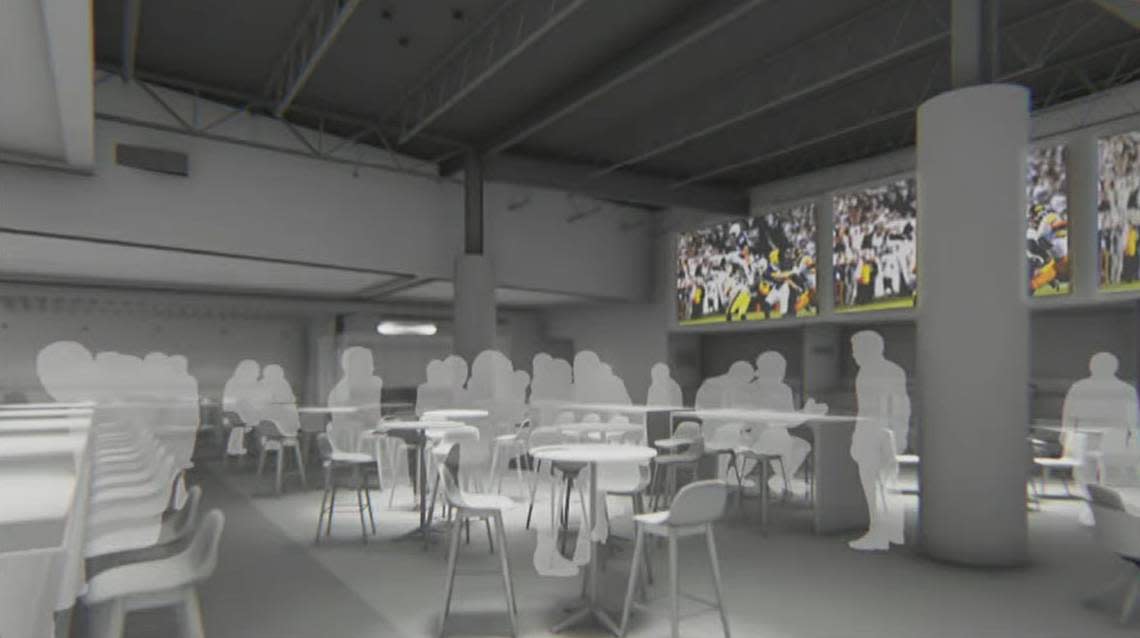Company that lost out to developers of proposed mini-casino appeals to PA Supreme Court
The company that lost out to the proposed developers of a mini-casino at the Nittany Mall filed an appeal Thursday with Pennsylvania’s highest court, a group of justices that may have final say over the future of the $128 million project.
Stadium Casino asked the Pennsylvania Supreme Court to vacate the Pennsylvania Gaming Control Board’s unanimous decision to greenlight the license needed for the project to move forward.
The license cannot be issued until all appeals — like the one filed Thursday — are exhausted. The process could take years. A spokesperson for state gaming regulators declined comment Friday.
No casino license decision in Pennsylvania has been overturned on appeal.
At issue is how investor and former Penn State trustee Ira Lubert paid for the license, as well as if the Pennsylvania Gaming Control Board even has the authority to consider the license.
State law requires bidders of a Category 4 license to have an ownership interest in an existing Pennsylvania casino. Lubert, who owns a small interest in Rivers Casino Pittsburgh, was eligible when he bid at the September 2020 auction.

Lubert and state gaming regulators have said he paid the roughly $10 million bid from his personal account the day after the auction. His competitor has challenged that assertion.
Stadium attorney Mark Aronchick wrote in the 108-page appeal that evidence shows Lubert formed an investment group of ineligible people to fund the bid. In exchange, they would receive an ownership interest.
“The problem with what Lubert did is that the Gaming Act requires the winning bidder for the Category 4 license, and the winning bidder alone, to pay the bid and apply for the license,” Aronchick wrote. “... If the winning bidder does not himself pay the winning bid ... the Board does not have the authority to even consider the application, let alone grant a license.”
A parallel lawsuit is pending before the state’s Commonwealth Court. Stadium sought discovery — the formal exchange of information and evidence — to establish all ownership interests behind the project.
Lubert and Co. sought to block the request, but the statewide appeals court ruled in favor of Stadium earlier this month.
The allegation that Lubert is not the sole owner is “more than a bare unsupported assertion,” Commonwealth Court President Judge Emerita Bonnie Brigance Leadbetter wrote. State gaming regulators and Lubert were given until March 10 to respond.
The project is planned for the 94,000-square-foot space that was once home to Macy’s. The nonsmoking casino — which plans to operate 24/7 — would have up to 750 slot machines, 30 table games, a sports betting area, a quick-service food court and a sports themed bar and restaurant with a stage for live entertainment.

Three entrances would surround the casino, two from outside and one from inside the mall. Lubert tapped Eric Pearson, a casino management veteran, to be the prospective CEO and general manager.
Construction is expected to take about a year.
Supporters of the casino have said it will be an economic boon for the mall and College Township. The casino would employ 350-400 full-time equivalent positions, and College Township would likely stand to receive about $1.6 million during the casino’s first year of operation — more than 10% of its current budget.
“I believe that the Category 4 casino I intend to construct at the Nittany Mall will reinvigorate the property and draw new businesses to the mall itself and the surrounding area,” Lubert told state gaming regulators. “This in turn will create jobs and help State College region’s economy grow forward.”
Opponents, some of whom started an online petition and the website saynocasino.org, have been vocal about their worries about a potential increase in crime, gambling addiction and the community’s overall well-being. They were unsuccessful in urging College Township’s and Penn State’s decision-makers to oppose approval of the license.

